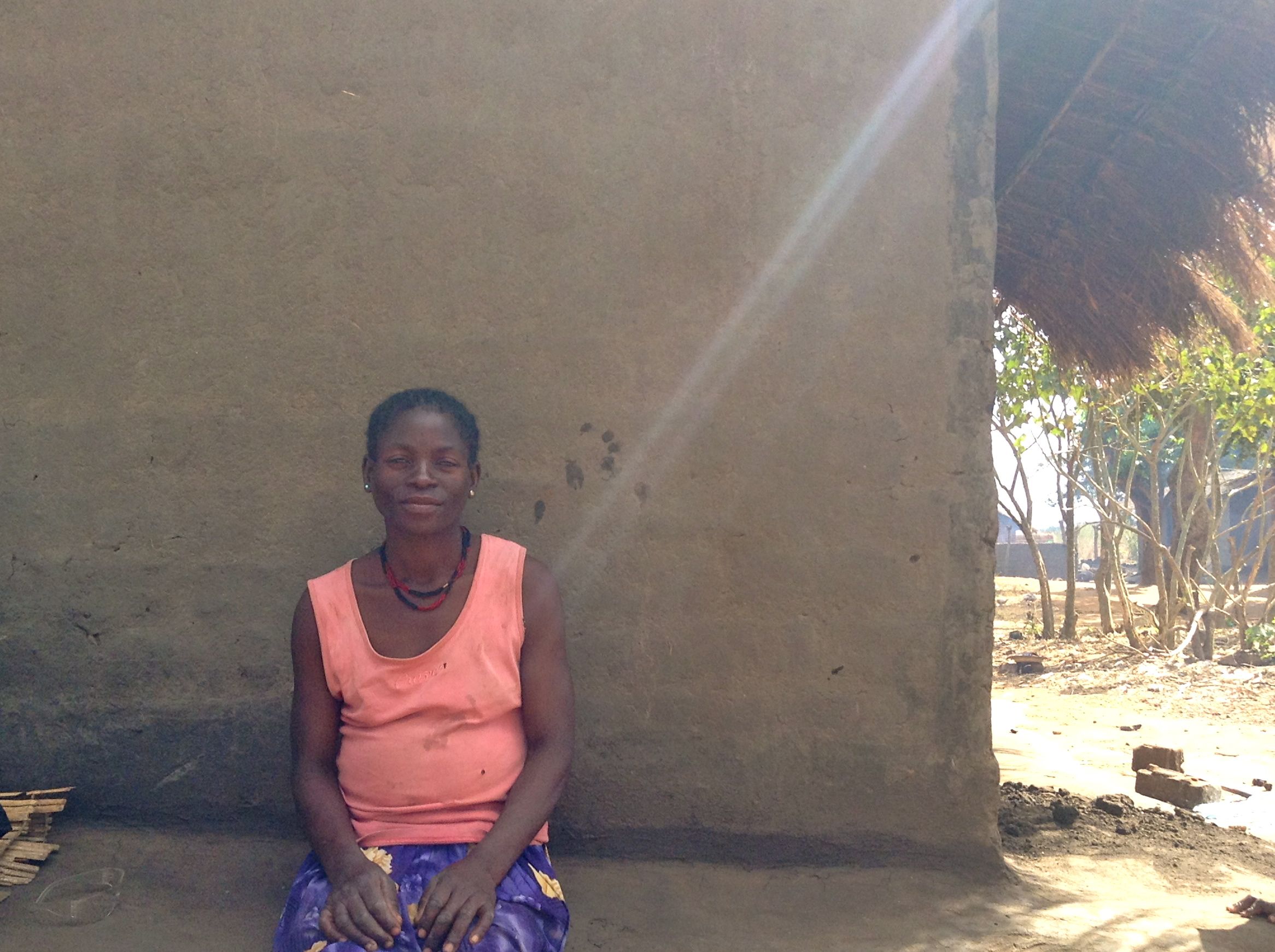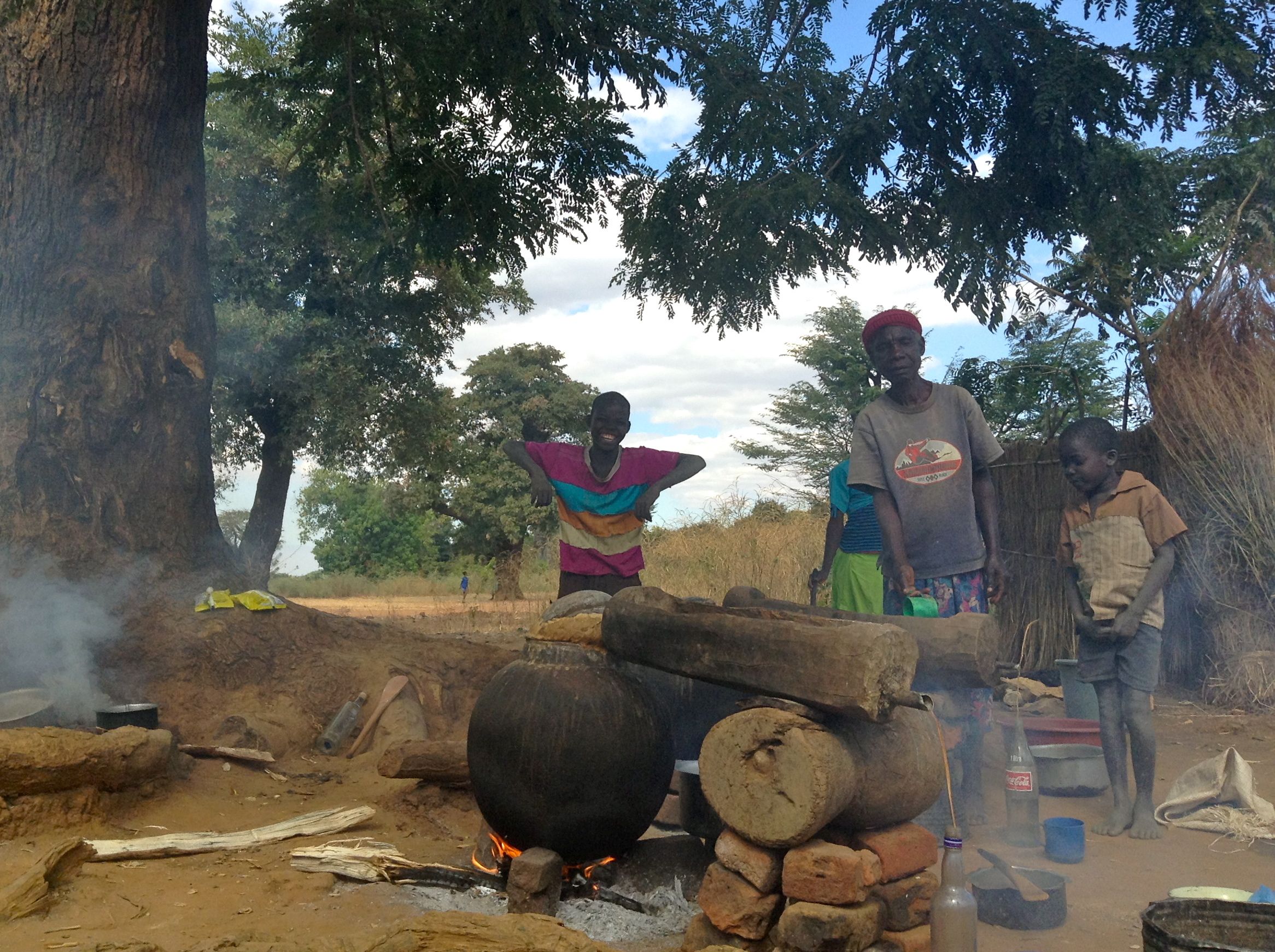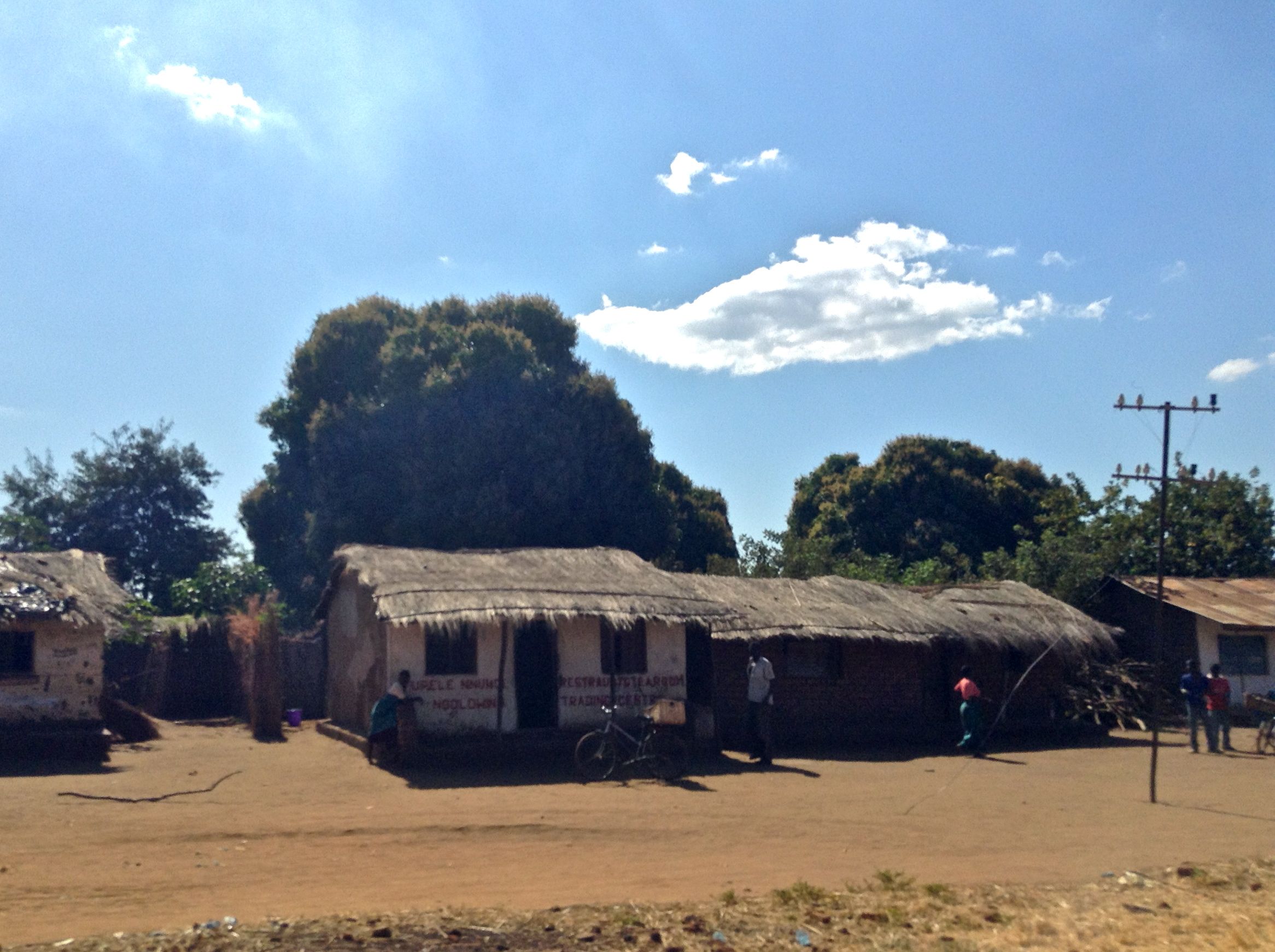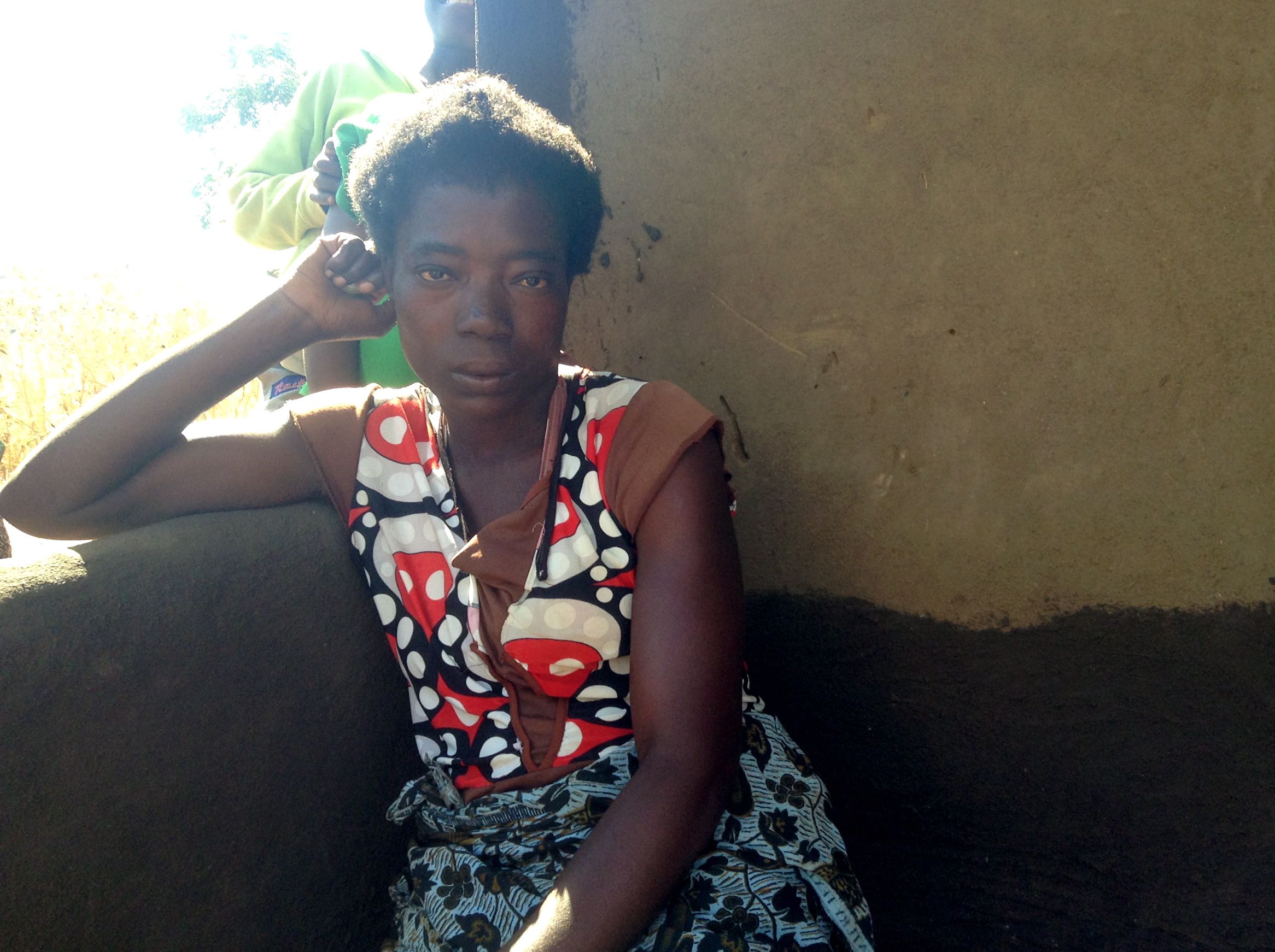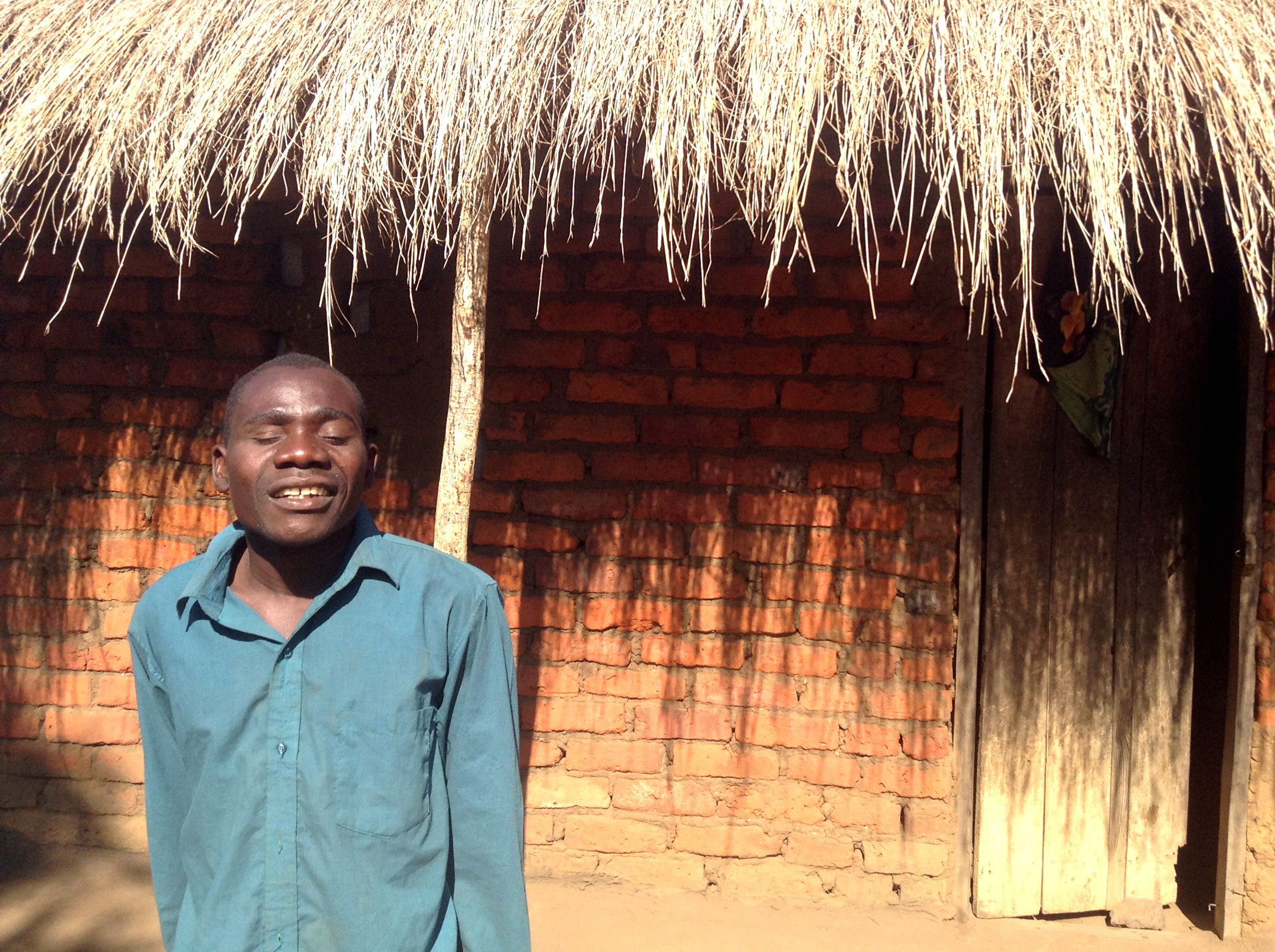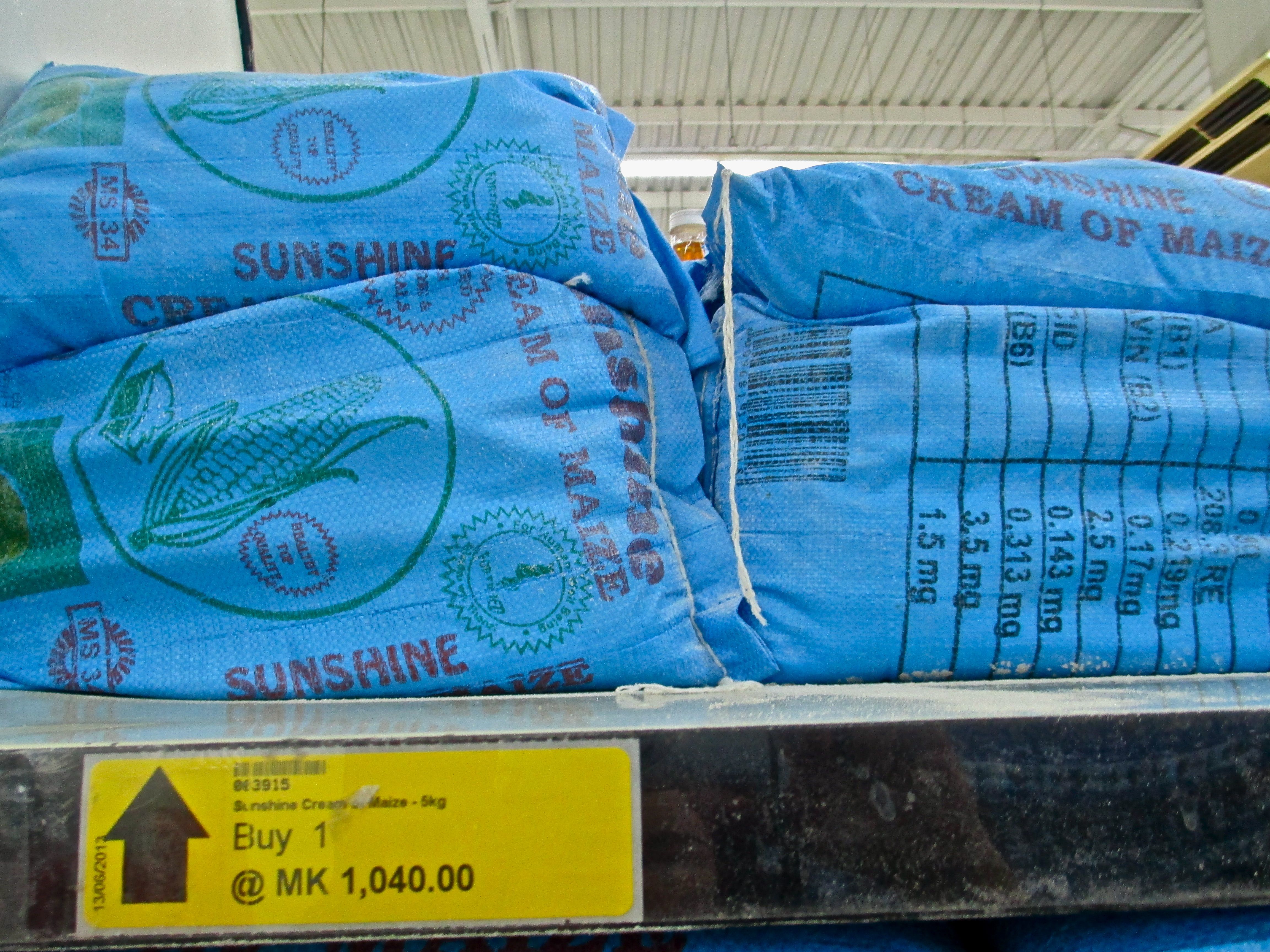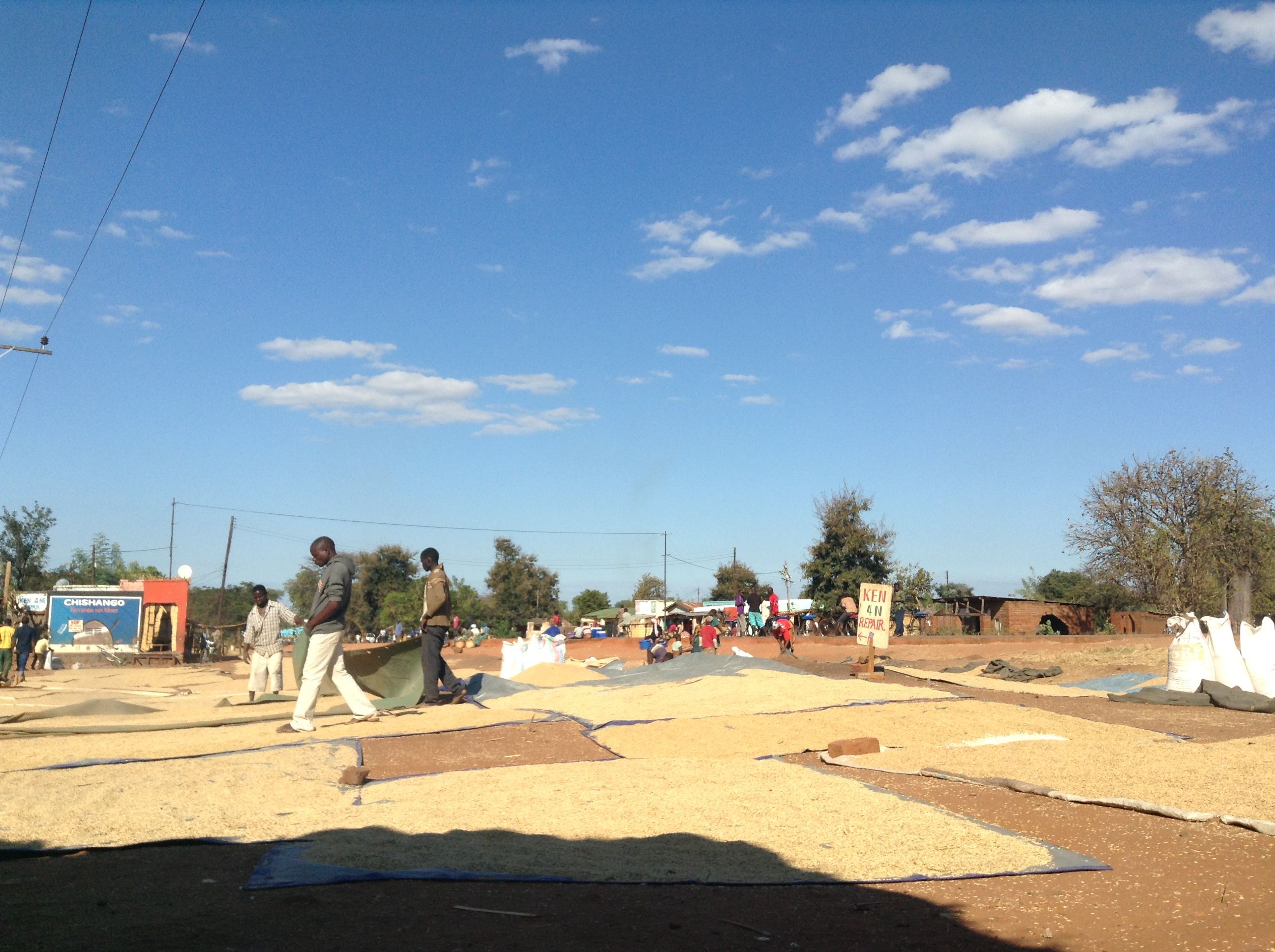When Martias Sayimon swings himself onto his bicycle he shows no sign of his heavy limp. The 35-year-old Malawian cruises past women selling tomatoes along the main road in Khombedza and market stalls where whole grilled goats are on display. As he comes to a turnoff that leads down a winding dirt path he pulls over, pausing to call out greetings to friends.
Sayimon is the local chairperson of a cash transfer program in this rural Malawian village. Part of his job is to oversee the distribution of a small monthly payment to a cluster of ultra-poor households. Sometimes, like today, he also makes house calls. With his bicycle he travels around the village to see how the neediest families in this community are faring. It takes about 10 minutes for him to get to Monica Nagwengwe’s home. Nagwengwe smiles when she sees him coming.
Nagwengwe, 30, has few possessions besides the roof over her head, some cooking utensils, and a cane sleeping mat. She shares everything with her own four children and two of her sister’s children she took in after her sister died. The household of seven receives a cash transfer of 2,200 kwacha, approximately US $7, per month. After greeting Sayimon she takes a seat on the freshly swept ground in front of her home and lists the large and small changes in her life since she started receiving the cash transfer. “We can buy soap and things for our daily needs,” she says. “And my children are going to school.”
The Mtukula Pakhomo cash transfer in Khombedza took root two years ago. The name of the program means “to empower the household” and is an offshoot of a national social protection program funded by the German bank KfW and the Malawi government, as well as Irish Aid and UNICEF. The goal of the program is to provide much-needed support to the country’s most vulnerable families – the ultra-poor and the labor-constrained. In a rural community like Khombedza, there are few stable jobs. The village is a 40-minute drive from the shores of Lake Malawi and two hours east of the capital, Lilongwe. Many people here support themselves by farming or finding "ganyu," odd jobs where workers are paid by the day.
Nagwengwe makes some money brewing kachasu, a potent maize beer, with a few of her neighbors. She hopes that eventually she can invest part of the monthly cash transfer into this business. But at this point their monthly allotment covers only some of the family’s most basic needs. There are still days when her children go to school on an empty stomach and she worries that the cash transfer’s positive impacts will be undone if this monthly stream of cash dries up. “The program cannot stop,” she says. “If this program continues to boost us up so that we reach our needs on our own, then we can change the things we need to change.”
Before the cash transfer program started it was not unusual for families to gather under a tree to sleep at night. Now, many of the cash transfer recipients are building or improving their houses—they are replacing leaking roofs and stocking up on durable mud bricks. Others are dreaming of other small-scale investment opportunities. “If the social cash transfer continues I want to buy a goat,” laughs George Jeremiah, 35.
Jeremiah also lives in Khombedza. The month when he started receiving the cash transfer, December 2012, stands out clearly in his memory as a turning point for him and his family; he and his wife, Jenet, are both blind and as a result they had relied primarily on the charity of people in their community for survival.
“Our daily life, it was a very hard life,” Jeremiah says. He describes how he and his wife would sit by the road, waiting for someone to take pity on them. “Sometimes well-wishers would touch us on the hand,” Jeremiah says, tapping one hand with the other to show how on a good day someone might pass him a plate of corn or press a 100 kwacha note into his hand. At that time the thought of sending his daughters to school was unimaginable. Now Loveness, 10, the oldest of his three daughters, is studying at the local primary school. Although he and his family continue to struggle, Jeremiah is optimistic about a future where he can support his family with the help of this cash transfer. “There are challenges but it is a gift.”
“Every month this money can assist us,” he says, emphasizing that the cash transfer gives them a degree of financial stability and helps them plan for the future. “We need to get grass for the roof on our house to prepare for the rainy season. We need to buy cloth and pay the tailor for uniforms for our children.”
For both Jeremiah and Nagwengwe these programs are an investment in Malawi’s future. “I can depend on this program and I can live like this,” Nagwengwe explains as she watches a group of children playing in front of her neighbor’s house. “If this program continues, these children can have a better future.”
